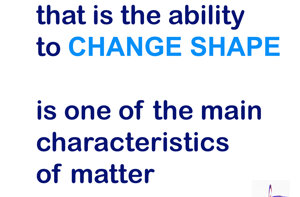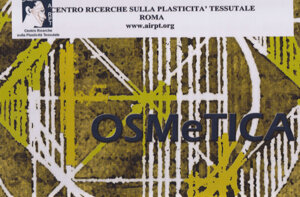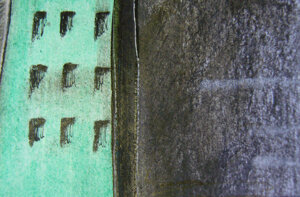MOULD YOURSELF
How to Get (Your Body) Moulded and Live Happily




THE BEAUTY OF THE COSMOS
Beauty surgery takes place following methods and in places that are far from beautiful. Scarification, detachment, aspiration, injection, cutting, cauterising, piercing: all these operations are part of our daily work.
They are also part of all destructive actions aimed at cancelling out the classic values (only to reinstate them as soon as they are assimilated) and show the blood-thirsty taste of the surgeon, sometimes appeased, other times exasperated by having to follow the rules. In both cases, we take the toy to pieces in order to understand its structure.
The surgeon who shapes the body following an idea of beauty does so with means and in ways that are the exact opposite of beauty, subject to the same paradox whereby the actor must free himself of all emotion to produce emotions in his audience, or the baker, who has to sell his bread to earn his bread.
On the other hand, the greatest satisfaction for any creator, great or small, comes just from this feeling of abnegation, more lasting and vibrant than any feeling produced by his or her identification with the finished work, from which detachment will now follow.
Awareness always challenges and depresses the feeling of power.
What else can God have felt during the Creation?
Epimenides showed that narcissism was inconclusive, with his examples on self-referentiality that end in absurdity. For example, if I say that I make people beautiful who cannot do so themselves, and I then ask myself whether I can make myself beautiful: if I answer "yes" it means that I can't make myself beautiful myself, while if I answer "no" then I still must recognise that I cannot succeed in making myself beautiful myself (1).
Those who create beauty, suffering from the penalty of the above phenomenon of "privation of the product" are however very capable of maintaining the external gradient of beauty at its highest levels, since they possess a capability to perceive beauty in the infinitely small. In a word, they must be capable of finding enjoyment in small things.
Writing this diary is part of the sum of energy spent in extracting some fragments of beauty from an activity that is without beauty. I have tried to exemplify to the extreme, to stylise surgical techniques and report them in the form of axioms, to extract the geometrical rule from the technical gesture and the model from the chaotic and bloody relationship between doctor and patient.
When one attempts to avoid wasting energy, one comes close to performing a beautiful action. Economy, proportion, intelligibility are qualities of beauty that recall the world of formulas, the universal language of numbers, the equations of physics and mathematics, which are universally understandable.
Physicists, who are looking for the ultimate equation, that of the unified field, are also convinced that it will be the most beautiful of all, a sort of "Miss Universe" of equations. A formula that, by unifying all forces acting in nature, it should be possible to portray in a painting, to play on the strings of a harp, to evoke in the silence of meditation like the Mantra of mantras, to shout in the heat of battle or in the intoxication of joy, in the ecstasy of the martyr like the Vowel of vowels.
The diagrams I have used here are part of a "domestic mathematics" with which the most varied types of procedure can be described, and thus accelerated, from cephalometric analysis to preparing home-made ice-cream.




In The Scope of Mathematics (Oxford University Press, 1966) Holt and McIntosh illustrate that kitchen recipes can be represented through critical path analysis. These diagrams look like constellations and, at a glance, represent the correct succession of operations to be performed in the shortest possible time. They are used in building complex models such as aeroplanes or bridges, but can also provide the housewife with irrefutable arguments for buying new electric appliances. However, they damage the sacred tradition of handing down recipes by word of mouth.
If critical path analysis draws constellations, tree diagrams to calculate probabilities look like the trees of Mondrian and Euler-Venn's diagrams of set theory look like paintings by Kandinsky, Delaunay, Kupka, Balla and others.
The Taoists enclose the meaning of life within a diagram, the T'ai-chi T'u, which means Diagram of the Ultimate Reality. It represents the flow of existence in which the opposites, Yng and Yang, periodically alternate. The diagram on page 82 shows the dominance of Plasticity over the physical world. The Plastic Principle is thus subordinated to the Ego, which has the power of intervening on the process of continual transformation of reality (I avoid using the term Super-Ego or Trans-Personal-Ego so as not to fall into the same non-sense of self-referentiality of Epidemides, although I know this does not worry the psychologists).




But there is more to the diagram. The arrow in the direction of the Ego comes from the Super Power that dominates the Cosmos, harmonises opposing energies, integrates body-mind with space-time. It is clear that we are talking here about the same force that the physicists are looking for in the ultimate structure, the ultimate equation.
It is the idea of beauty, which at all levels transpires from the project of the universe. The word Cosmos derives from the Greek còsmos, which means beauty (hence also the word cosmetic). If the idea of beauty were to inspire the actions of our lives, any useless attempt at violence would be removed from us.
Whoever is inspired by the idea of beauty believes in the economy of gestures, and prefers courteous behaviour (which requires less energy expenditure) to coercive behaviour (which greatly increases the entropy of the system). The idea of beauty is linked to proportions, to geometry, and it can teach us to use our body-mind and the space-time surrounding us properly. If we take proper measurements in our actions, we will perform beautiful actions. The completed diagram presents Beauty at the top, governing the Ego and the opposed forces that regulate the physical world.
Guided by the idea of beauty, we will succeed in bringing the body-mind into agreement with space-time, harmonising the opposed forces that are inherent in all vital processes. We should all learn to recognise beauty in the various physical states of matter and in the different conditions of existence.
Beauty that does not repudiate ugliness but recognises itself through its opposite. Modulation of the exchanges that take place between body-mind and space-time under the aegis of harmony, of proportion and of rhythm, makes it possible to achieve perfect equilibrium between opposing energies.
Knowledge of the right quantity of thoughts, food and sounds that should enter and leave our body will produce our well-being and that of the external environment. Now that we know that everything, our body and the entire cosmos, is subject to plasticity, we need do nothing more than act guided by our sense of beauty, in kicking a ball or giving a kick to a theory, sliding on the snow or slipping on an argument, because tendons and neurons, balls and ski slopes, shape each other reciprocally as a function of the right principle.
Note 1. The surgeon perfectly fits the role of Bertrand Russel's barber, not least because both jobs have the same origins.
References
Massime Egotiste, 2003.
Machiavelli, Il Principe 1532.
Schopenhauer, Sul volere nella natura 1836.
Osmetik- Eudemonologia per il maschio, Italysophy 2018.
Wittgenstein, Tractatus Logico-Philosophicus 1921.
Balzac, Comédie Humaine 1830.
Fruscella, Diari vol 2, Piccoli Tentativi di Guarire gli Umani 2017.


